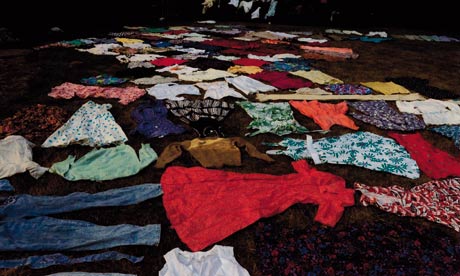
Granta's editors have, for the magazine's 119th edition, selected "Britain" as a theme. The Paul Smith-designed cover shows a chipped and cracked tea cup, its broken-off handle lying beside it. The implied idea – the break-down of respectability – is nicely in keeping with the collection's overall tone. The pieces here tend to emphasise the rough, squalid and often nihilistic side of British life. It's as if the editors have ventured forth from the usual territory and uncovered a strain of wildness – even madness – around the fringes. Country houses, public schools and metropolitan dinner parties – those staples of contemporary fiction – are conspicuously absent.
The fiction is generally stronger than the non-fiction, with the notable exception of Robert Macfarlane's brilliant account of walking the Broomway, Britain's "deadliest path", which stretches off the Essex coast. Whether this discrepancy reflects the lack of really good non-fiction writing in this country, or merely the priorities of the editors, is unclear.
Many of the fiction pieces are tinged with violence, whether set in country or town (there's a fairly even spread between the two). There's a beautifully measured Jon McGregor story about the aftermath of a young girl's disappearance from a northern village; a visceral, pulsating account of a badger baiting – told from a boy's perspective – by Cynan Jones; and a funny but vicious story set in a shambolic household of "meds" dealers by Adam Foulds. Mark Haddon's superb "The Gun" – about two boys misbehaving with a Remington in the woods – works a similar terrain.
In other cases, the main focus is sex. Sam Byers's "Some Other Katherine" (an extract from his debut novel, published next year) is a bracing, shocking piece of writing about an unhappy young woman who sleeps with a series of men from her office. Byers writes about the woman's motivations – and those of her partners – with an unusual frankness: he's clearly a writer to watch. A quieter, more nuanced exploration of attraction is to be found in Ross Raisin's story (also from a novel-in-progress) about a young footballer who develops feelings for one of the groundsmen at his club.
There is also a series of arresting photographs on the theme of "Home" – including Leonie Hampton's haunting assemblage, above – and several poems, including Simon Armitage's very fine "The Making of the English Landscape". The only oddity is a piece about the Belarus Free Theatre, which, as far as I can see, has nothing whatsoever to do with Britain.

